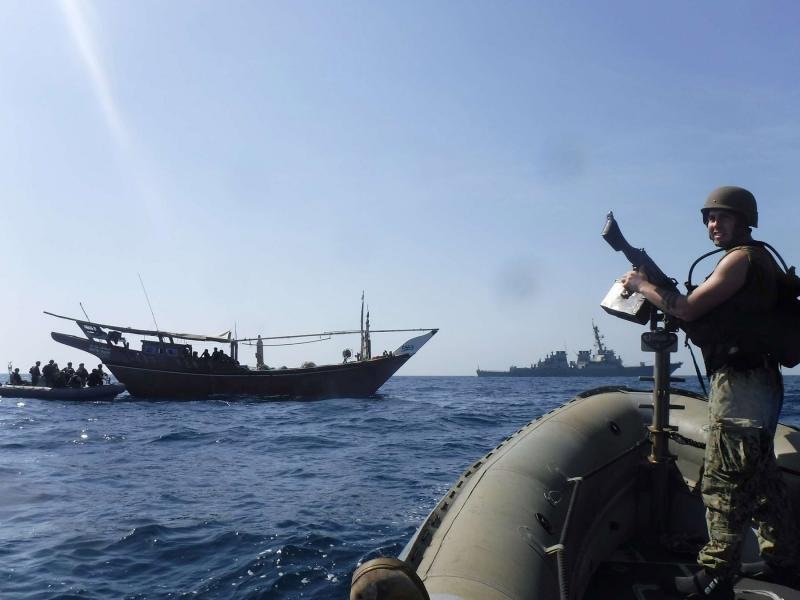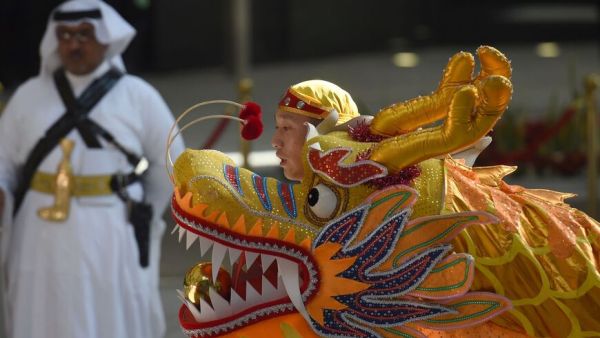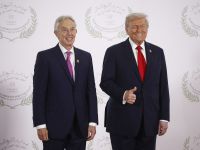Russia’s invasion of Ukraine has stunned geopolitics so far in 2022 and exhausted the attention of governments worldwide. China’s business in the Middle East, however, has not relented amid the global disruptions excited by the crisis. Beijing’s regional activities have grown and diversified this year despite negotiating a fraught world economy; its post-pandemic problems now swollen by conflict in Ukraine.
Faithful to recent years, Beijing’s activities have proceeded apace while shunning interference in regional politics. China’s maturing relationship with the Middle East revolves around economics. Beijing’s vaunted promise of “win-win cooperation” with regional governments is generally fulfilled via the cool transactional principle guiding Sino-MENA affairs.
This piece is part of "Looking East: The China-Gulf Initiative" exploring the expanding and multifaceted relations between China and Gulf Arab states. https://t.co/aezqNyAAy2
— AGSIW (@GulfStatesInst) July 20, 2022
Beijing’s primary focus on energy cooperation has diversified, connected to the Belt and Road Initiative (BRI). Technological and arms interests have also enriched Beijing’s economic cooperation, showcased during the prior 6-months or so.
As Russian forces collected on Ukraine’s eastern borders in January, Sino-MENA relations marked the new year with intent. The secretary-general of the GCC and foreign ministers from Bahrain, Saudi Arabia, Kuwait, and Oman visited the coastal province of Jiangsu for a series of meetings with Chinese foreign minister, Wang Yi, over the course of five-days.
Among the notable developments was an agreement to establish the China-GCC strategic partnership, and progress made in negotiations on a China-GCC Free Trade Agreement (initiated in 2004), foreshadowing a deepening of Sino-Gulf ties.
Beijing’s expansive interests complement the strategies of Gulf regimes to modernise and ally their economies with an environmentally sensitive world. Greater engagement with the GCC also shows Beijing’s desire to nurture its regional engagement on a multilateral footing – offering a pathway to skirt regional tensions and their complications when business is conducted on a bilateral basis.
https://t.co/d3tSYr7qwP
— Jagdeep Jiandani (@jjiandani) July 27, 2022
No country will now be able to match or meet China's manufacturing costs with such low-priced energy inputs..China will gradually stop importing oil and gas from the middle-east/gulf/Arab/African nations https://t.co/R53hkpYLjH
Thereafter followed the visit of Iran’s Foreign Minister to Beijing during which the 25-year strategic agreement – enhancing economic, energy and cultural interactions – of $400 billion, signed in March 2021, became operative. This reaffirmed Beijing’s contempt for Western sanctions and its role as primary counterweight to Tehran’s international isolation.
Regional tensions outside the GCC framework, so a common argument proceeds, challenge the limits of Beijing’s ability to cultivate economic partners indiscriminately. But its responses to regional conflicts and enmities in recent years show China’s neutrality in Middle Eastern politics – despite its minor role in JCPOA negotiations and token expressions of support for Palestinian plight – has been unyielding.
However, Beijing’s conscious detachment from regional politics cannot always be squared with its economic appetites. It involves itself in deals carrying latent political risk. In April, a Chinese company agreed to build 4 dams in Kurdistan. The BRI has driven infrastructure projects by Chinese companies in recent years, whether directly or peripherally associated with Beijing’s aim to bolster trans-continental connectivity.

Maritime concerns. The guided-missile destroyer USS McFaul’s visit alongside a Bahraini dhow during routine maritime security operations in the Arabian Gulf. (AFP)
This agreement appears to have come about without the knowledge of Baghdad, who has grave concerns about the implications of these dams for its domestic water sources. It is unlikely that this instance of hydro-political friction threatens Beijing’s respective relations with Iraq – the largest beneficiary of China’s BRI 2021 investments (approximately $10.5 billion in construction contracts). Nonetheless, it speaks to the uncertainty of whether China will continue to successfully evade political complications as its economic presence in the Middle East expands.
???? UAE backs Beijing's 'one China policy' following Pelosi visit to Taiwan https://t.co/QbmJmCvI9T
— China - Arab Forum (CAF) -- المنتدى العربي الصيني (@china_arabia) August 6, 2022
Moreover, seeking to strengthen its defences in the face of intensified conflict in the new year, the UAE announced in February its designs to purchase a dozen Chinese L15 aircrafts. This decision represented a snub to the United States whose $23 billion arms deal with the UAE, including F-35 fighter jets, has yet to materialise since negotiations were suspended by the UAE in December 2021.
The UAE’s decision was a response to severe conditions imposed on the deal by Washington surrounding Abu Dhabi’s strengthening relationship with China – and its risk to sensitive F-35 technology and information. Last month’s announcement that the first overseas office of the Asian Infrastructure Investment Bank (AIIB) will be in Abu Dhabi is a testament to the flourishing of Sino-UAE relations.
In July, Saudi Arabia obliquely threatened to follow suit and purchase arms from China if unable to acquire US arms.
Such incidents show the implications of emerging Sino-US competition in the Middle East – whose influence on regional politics will thicken in time. The US cannot possibly compete with China in most areas of commerce.
But in the realms of technology and security the US has key interests and it will act accordingly. The unfavourable responses of Abu Dhabi and Riyadh to this new reality indicate that Washington’s uncompromising attitudes towards such matters threaten to alienate regional governments – ceding opportunities and so influence to Beijing.
With the first China-Arab summit scheduled this year in Saudi Arabia, China’s imprint on the Middle East will deepen further as the latter half of 2022 unfolds.
The views expressed in this article do not necessarily reflect those of Al Bawaba News.









